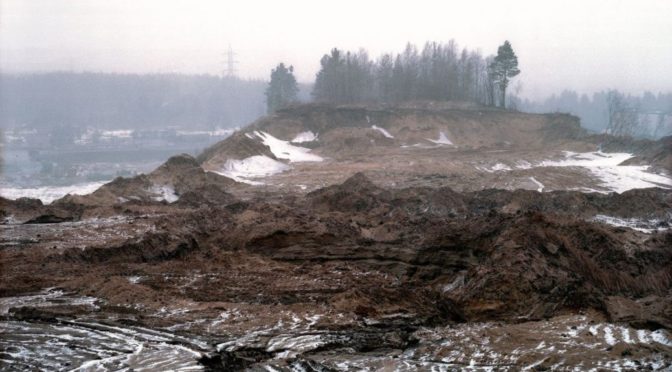The sixth session of the seminar “Nature(s) & Norms” (NANO), carried out within the framework of the research program SAMSON (Sciences, Arts, Medicine and Social Norms), developed by Sorbonne University (Paris), the Faculty of Arts of the Charles University (Prague), Warsaw University and CEFRES welcomes two participants: Irina Tcherneva (CNRS) and Olga Kaczmarek (Warsaw University).
Location: Paris, CEFRES Library and online (zoom)
To receive the link, please contact us at cefres[@]cefres.cz
Date: Friday, March 24th 2023, 4.30 pm
Language: English
Part 1
Landscape in the comprehension of crimes: practices of Soviet film makers
Irina Tcherneva, CNRS, Eur’ORBEM
Abstract: This contribution focuses on landscape and the spatial dimension in the documentary films and photographs created by the Soviets in 1941-1945 during the liberation of Nazi-occupied territories. The places where Nazi crimes and war crimes took place make the Soviet terrain unique in the history of the Holocaust. Until now, visual analysis has not been mobilized to examine these traces in rural and urban environments. I shall cross-reference the visual and textual corpus created by the film milieu, by the Extraordinary State Commission that collected data on the crimes, as well as by certain doctors or journalists who practiced photography. In doing so, I shall examine the informational value of landscapes for the cameramen and investigative agencies that rely on the visual tool to document mass violence. The presentation will highlight an evolution in the practices of filmmakers and photographers with regard to the perception of the environment and the codes of its representation in image and narrative.
Irina Tcherneva, historian, specializes in Soviet documentary film and photography and is senior researcher at the French National Centre for Scientific Research (CNRS/Eur’ORBEM). Her research focuses on the socioeconomic history of documentary cinema, the history of film audiences and film technique, and the role of visual documents and artworks in the Second World War and in postwar trials. Her recent participation in research projects include the Horizon 2020 project “Visual History of the Holocaust” (2019–2023, coordinated by Ludwig Boltzmann Institute for Digital History and Austrian Film Museum), “CINESOV—Soviet Cinema at War 1939–1945” (France, CNRS), “WW2CRIMESONTRIAL1943–1991” (France, CERCEC), and “Images of Justice: The Nazis and the Collaborators on Trial in the Liberated Europe” (France, University Paris 1). Recent publications include Seeking Accountability for Nazi and War Crimes in East and Central Europe: A People’s Justice? (Rochester University Press, 2022; with Eric Le Bourhis and Vanessa Voisin); Perezhit’ vojnu: Kinoindustrija v SSSR 1939–1949 (Rosspen, 2018; with Vanessa Voisin and Valérie Pozner); and the special issue of the review Conserveries mémorielles The Cinema Goes to War: Screens and Propaganda in the USSR (1939–1949) (24, 2020; with Valérie Pozner).
Part 2
“Just Beyond this Forest”: Woods as the Landscape of the Polish Ambivalence in the Shoah in Polish Holocaust Movies
Olga Kaczmarek, Institute of Polish Culture, University of Warsaw
Abstract: In the Polish cultural imagery forest has in recent years become one of the vehicles of memory about the positions taken by Poles during the Shoah. This has been reflected in a number of film productions, especially in the last 30 years. The very term “Holocaust movies” is not entirely accurate here, as it suggests straightforward depictions, while woody landscape covers and unveils ambivalence od Poles’ attitudes to Jews during World War Two, on the “verges of the Shoah”. The talk will explore the role of this imagery in mediating discourse on wartime Polish/Jewish relations within popular and not-so-popular cinematography.
Olga Kaczmarek is the director general of Forum for Dialogue, the largest and oldest Polish non-profit committed to fostering Polish/Jewish Dialogue. She holds a PhD in cultural studies from the Institute of Polish Culture, University of Warsaw. She is the author of the book Otherwise than Writing: Levinas and Postmodern Anthropology (2016, published in Polish by Wydawnictwa Uniwersytetu Warszawskiego). In the recent years in her academic work she focused on the discourse on wartime Polish/Jewish relations in Poland. She was one of the authors of the volume Traces of the Holocaust in the imagery of Polish culture (2017, published in Polish by Wydawnictwo Krytyka Polityczna).
See the complete program of the Seminar here.

